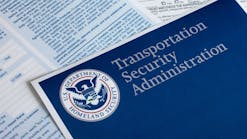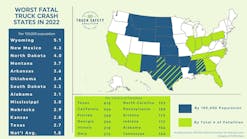The Federal Motor Carrier Safety Administration (FMCSA) has granted an exemption from the 30-minute rest break requirement for trucks hauling petroleum products. Under certain conditions, fuel trucks can operate for 12 hours a day without triggering the rest break requirement.
With this exemption, FMCSA recognized that “these drivers receive several short ‘breaks’ each day when they unload…at service stations.”
“This is a great development for our fuel haulers and a shining example of association partnership for trucking advocates,” said NTTC President Daniel R Furth. “We are thrilled that the agency agrees that this relief will lower costs for carriers and prices for consumers without compromising safety on our nation’s roadways.”
NTTC and the Trucking Association of Massachusetts (TAM) jointly applied for the exemption in August 2017, and granted exemption formally published in the Federal Register on April 9, 2018 and will last until April 8, 2023. It can be renewed. Additionally, the exemption preempts inconsistent state laws for shipments in interstate commerce.
The two organizations requested that FMCSA exempt the drivers who would be on-duty more than 12 hours so long as their vehicles were carrying petroleum products and were equipped with an electronic logging device. FMCSA agreed that the time these drivers spend unloading provides rest that is equivalent to, and often greater than, rest from the traditional 30-minute rest break. Accordingly, the exemption allows these drivers a 14-hour window to make their fuel runs.
Former TAM chairman and NTTC member John Hamel, president of J&S Transport Co of Lynn MA said: “This was a big win for us. This announcement will provide relief that allows our drivers to get more rest and creates flexibility that will provide improved customer service and greater fleet efficiencies.”
Discussions with FMCSA regarding a fuel hauler exemption from the rest break requirement were first held in late 2016 by a delegation from the two associations that included Furth; Hamel; Boyd Stephenson, NTTC senior vice-president, government affairs; and Becky J Perlaky, executive vice-president, safety & compliance, Kenan Advantage Group Inc. In August 2017, the two groups officially asked that FMCSA issue an exemption from the 30-minute rest break requirement for certain fuel haulers using the hours of service exception referred to as the “12-hour,” “short haul,” or “100 air-mile” exception.
To be eligible for the exemption, the driver and carrier must meet the following criteria:
• The driver normally operates under the short-haul exception;
• The driver must finish their work day within a 14-hour window;
• The driver’s vehicle must be equipped with an ELD;
• The driver must be transporting one of the following cargoes:
O UN 1170–Ethanol,
O UN 1202–Diesel Fuel,
O UN 1203–Gasoline,
O UN 1863–Fuel, aviation, turbine engine,
O UN 1993–Flammable liquids, n.o.s. (gasoline),
O UN 3475–Ethanol and gasoline mixture, Ethanol and motor spirit mixture, or Ethanol and petrol mixture, or
O NA 1993–Diesel Fuel or Fuel Oil
• The carrier must have a “satisfactory” or “unrated” safety rating; and
• A copy of the exemption notice must be in the vehicle
These fuel haulers’ drivers normally operate under the 100 air-mile exception to the hours of service. That exception allows drivers that report to and finish their driving periods from the same location and who do not travel more than 100 air-miles from that terminal to operate during a 12-hour window without recording their hours of service record of duty status. Before the exemption was granted, drivers that did not return to their terminal within this 12-hour limit fell under the normal hours of service regulations and would be subject to the rest break requirement.
The associations applied for this exemption for three reasons, according to Stephenson: First, these drivers were already effectively receiving rest breaks while unloading at gas stations. Because most fuel haulers unload three or four times per shift, these drivers were receiving more than the regulatory minimum amount of off-duty rest. Second, if a driver realized that they would exceed the 12-hour on-duty window after they had already driven 8 hours, the driver would immediately be required to take a 30-minute rest break. Because these hazmat loads require drivers leave them in safe places, the driver might be forced to drive even further and longer to find a safe place to rest. Finally, anti-cargo theft and anti-terrorism concerns militate in favor of ensuring that these loads are delivered as quickly as possible.
“NTTC is pleased that FMCSA agreed that these concerns were sufficient to grant an exemption,” he said. “We are also pleased that FMCSA agreed that operating under this exemption would not negatively impact safety.”
Carriers can access copies of the exemption by visiting www.federalregister.gov, clicking the “Current Issue” tab, and then changing the date to April 9, 2018.
The exemption is effective immediately. Drivers and vehicles that have accidents while operating under the exemption are required to notify FMCSA via email at [email protected] within five business days of the accident.









